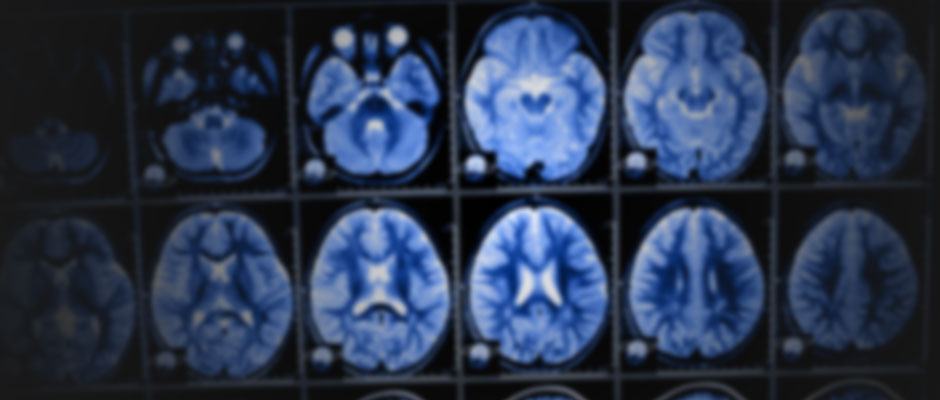
Pertussis (Whooping Cough) and Vaccine Injury
Pertussis (Whooping Cough) Vaccine
Pertussis, also known as whooping cough, is a respiratory illness that can affect people of all ages but is especially dangerous for babies. The key symptom of pertussis is an intense, uncontrollable cough that makes it difficult to breathe; this results in heavy breathing that makes a “whooping” sound. Whooping cough can be prevented with the pertussis vaccine, which is typically administered in combination with other vaccines, most commonly diphtheria and tetanus vaccines.
The CDC recommends 5 rounds of whooping cough immunizations, with the first dose at 2 months, the second dose at 4 months, the third dose at 6 months, the fourth dose between 15 and 18 months, and the fifth dose between 4 and 6 years old. In addition, booster shots for teens and pregnant women are recommended.
IMPORTANT: This information does NOT apply to injuries from the COVID-19 vaccine.
Having Trouble Deciding Who Will Represent You in Your Vaccine Case?
We make it easy with our simple guide to choosing the right lawyer for your vaccine case.
mctlaw Represents Clients Who Suffer Adverse Reactions From the Pertussis Vaccine
- Our attorneys have won hundreds of millions of dollars in vaccine injury payouts for vaccine-injured clients.
- Our attorneys negotiated a $61 million compensation plan for a girl who received the DTaP vaccine and at only two months old, developed cerebral palsy, encephalopathy, seizure disorder, and cognitive delays.
- Since 2017, the National Vaccine Injury Compensation Program (NVICP) has paid out over $775 million in compensation awards to vaccine injury victims.
- The most frequently compensated pertussis vaccine is Tdap. In fact, Tdap is the second most frequently compensated immunization in the entire NVICP vaccine list, second only to the flu shot
Are You Eligible to File a Vaccine Injury Claim?
There are some basic requirements to be eligible to file a claim in the Vaccine Injury Compensation Program:
- The vaccine must be one of the types listed on the Vaccine Injury Table by the VICP.
- The claim must be filed within the statute of limitations. That means you have a short window of time to file a claim.
- The vaccine injury must last for at least 6 months after the vaccination was given.
- Or, the reaction to the vaccination resulted in a hospital stay and surgery
- Or, the reaction must have resulted in death.
- You must file a claim within a certain period of time. There is a statute of limitations to file in the NVICP. It’s best to discuss this with an attorney to know when the clock on your case started ticking.
About the VICP
- Mctlaw files all vaccine injury cases through the Vaccine Injury Compensation Program (VICP), a special no-fault court designed to compensate individuals who suffer rare vaccine injuries. Because our legal fees are paid directly by the VICP, you will never pay any money to our firm–even if you receive a payout for your vaccine injury. In fact, it is illegal for attorneys to charge clients any fees related to an VICP case.
- According to the U.S. Health Resources and Services Administration (HRSA), for every one million vaccines administered in the U.S., there is one VICP payout. Because there are such strict regulations to qualify for NVICP compensation, having attorneys with extensive vaccine court experience is key to your case.
- Vaccine injury payouts can happen two different ways: as a direct compensation from the VICP, or as the result of an out-of-court settlement. According to the Health Resources and Services Administration (HRSA), the average length of time from filing to receiving a payout is about two to three years.
Types of Adverse Reactions to the Pertussis Vaccination
Vaccines are one of the most important medical interventions of our time. They protect us from a variety of devastating diseases. While most individuals feel no side effects from the pertussis shot, adverse reactions to the vaccine can happen. Some reactions that have been associated with pertussis are listed below.
Acute Disseminated Encephalomyelitis
Acute Disseminated Encephalomyelitis, or ADEM, is a rare neurological disorder that primarily affects children but can also occur in adults. ADEM usually occurs after a viral or bacterial infection; however, there have been ADEM cases that developed following a flu shot.
With ADEM, the immune system essentially overreacts and produces inflammation in the nervous system and damages the protective layer that coats nerve fibers. This causes individuals with ADEM to experience confusion, blurry vision, and difficulty moving.
Though the disorder can be quite debilitating, the severity of symptoms can be managed with treatment, and individuals can make a full recovery from ADEM.
Brachial Neuritis
Brachial Neuritis, also called brachial neuropathy or brachial plexus injury, is a disease that can cause pain and loss of function of the upper body and arms.
Although the exact cause of brachial neuritis is unknown, this rare condition is known to sometimes occur after injection with the flu vaccine or as the result of an injury.
Brachial neuritis symptoms usually disappear on their own after a few months, and they can also be managed with medical treatment.
Encephalitis
Encephalitis is inflammation of the brain. It can be caused by a direct infection to the brain (a condition called infectious encephalitis) or by the immune system mistakenly attacking the brain (a condition called autoimmune encephalitis, or post-infectious encephalitis).
In very rare cases, individuals have experienced autoimmune encephalitis after receiving the influenza vaccine.
Although treatment for encephalitis exists, recovery from this disorder varies widely on a case-by-case basis. While some people make full recoveries, others are left with lifelong complications.
Transverse Myelitis
Transverse Myelitis is a rare neurological disorder in which both sides of the spinal cord become inflamed, causing paralysis, pain and other disturbances throughout the body.
An autoimmune disease, transverse myelitis occurs when a triggering event (such as an infection or even a flu vaccine) causes the immune system to go haywire and attack the spinal cord as if it were a disease.
The typical case of transverse myelitis causes weakness in an area of the body (such as the legs) that becomes progressively worse and can spread to other parts of the body.
Symptoms typically progress rapidly over the course of a few days. Recovery is either partial, moderate, or full depending on how well the individual responds to treatment.
Chronic Inflammatory Demyelinating Polyneuropathy (CIDP)
Chronic Inflammatory Demyelinating Polyneuropathy, or CIDP, is a disorder that causes weakness and dysfunction in the limbs. In rare cases, CIDP can develop after receiving a flu vaccine.
Though the exact cause of CIDP is not known, evidence suggests that it is an autoimmune disorder in which the immune system attacks the protective layer around the nerves.
CIDP typically begins with numbness or tingling in the toes and/or fingers, and then spreads to the arms and legs. Although some individuals experience permanent weakness in the affected body parts, most people with CIDP make a full recovery.
Polyarteritis Nodosa
Polyarteritis Nodosa (PAN) is a rare disease in which the arteries become inflamed and unable to transport oxygen and nutrients throughout the body.
Though the exact cause of PAN is not known, scientists believe that PAN is caused by a triggering event that prompts the immune system to attack the arteries.
Triggering events might be an illness, drug use, or, in rare cases, the pertussis vaccine. The most common symptoms of PAN are kidney problems, joint pain, and muscular pain.
There is no cure for PAN, and severe cases can result in organ failure.

Find Out Right Now if You Have a Vaccine Injury Claim
Your case review is free. If we file your claim, you pay absolutely NO legal fees.
The DTaP and Tdap vaccines are sometimes combined with other vaccines. Below, we list the various combination vaccines that protect against pertussis. They are listed from most popular to least popular in the United States:
- Tdap: The Tdap vaccine protects against tetanus, diphtheria and acellular pertussis (whooping cough).
- DTaP: The DTaP vaccine protects against diphtheria, tetanus and acellular pertussis (whooping cough). DTaP is a pediatric vaccine, so it is only licensed for use in babies and children under 7 years old.
- DTaP-Hep B-IPV: This formulation protects against diphtheria, tetanus, acellular pertussis (whooping cough), hepatitis B, and poliovirus.
- DTap-IPV-HIB: This vaccine protects against diphtheria, tetanus, acellular pertussis (whooping cough), poliovirus, and influenza type B.
- DTaP-IPV: This vaccine protects against diphtheria, tetanus, acellular pertussis (whooping cough), and poliovirus.
- DTP-HIB: This vaccine protects against diphtheria, tetanus, acellular pertussis (whooping cough), and influenza type B.
- DTP: This vaccine protects against diphtheria, tetanus and whole-cell inactivated pertussis (whooping cough).
- DTaP-HIB: This vaccine protects against diphtheria, tetanus, acellular pertussis (whooping cough), and influenza B
Content Reviewed by Joseph Vuckovich – Vaccine Injury Lawyer

Joseph Vuckovich represents clients in the National Vaccine Injury Compensation Program. He is based in mctlaw’s Washington, DC office. Joe studied neuroscience and psychology at Harvard where he earned his B.S. degree. He earned a Master’s Degree in biology from the University of Cambridge in the UK, and his law degree from New York University School of Law. Joe grew up in Pittsburgh and now lives in Alexandria, Virginia with his wife and daughter.
This page was last updated:
References
- https://www.vaccines.gov/diseases/pertussis
- https://www.cdc.gov/vaccines/schedules/hcp/imz/child-adolescent.html
- https://www.hrsa.gov/sites/default/files/hrsa/vaccine-compensation/data/data-statistics-report.pdf
- https://www.hopkinsmedicine.org/health/conditions-and-diseases/brachial-neuritis
- https://www.encephalitis.info/what-is-encephalitis
- https://www.ninds.nih.gov/Disorders/All-Disorders/Chronic-Inflammatory-Demyelinating-Polyneuropathy-CIDP-Information-Page
- https://www.nationalmssociety.org/What-is-MS/Related-Conditions/Transverse-Myelitis
- https://rarediseases.info.nih.gov/diseases/7360/polyarteritis-nodosa
- https://www.hrsa.gov/sites/default/files/hrsa/vaccine-compensation/data/data-statistics-report.pdf


Find out right now if you have a vaccine injury claim
Your Case Review is Free. Don’t Wait to Get Help Because There is a Deadline.
The COVID-19 Vaccine is NOT Eligible

As an experienced leader in these types of lawsuits, we were confident the firm would have the expertise. However, what surprised us most was the high level of excellent customer service from the firm’s staff!
Pat R.
I can’t recommend this firm enough. They have an outstanding team that truly care for their clients…I have been awarded a fair six figure settlement.
Nate M.
When I say “they went to bat” for me…this Law Firm literally did just that. They persevered to bring the hard-nosed Manufacturer to settle and provide me some recompense for everything I had to endure which led to this suit.
Me’Chelle